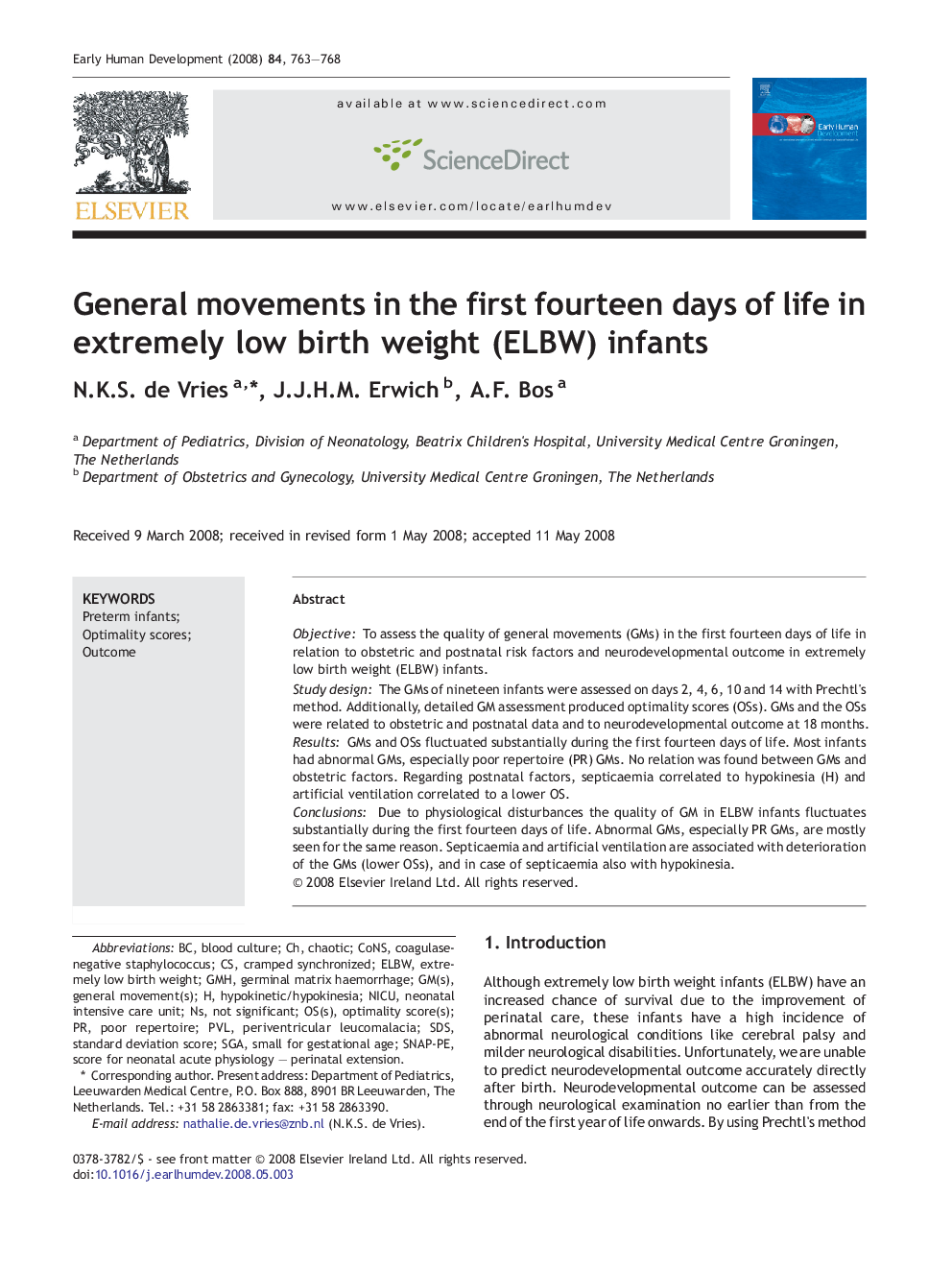| Article ID | Journal | Published Year | Pages | File Type |
|---|---|---|---|---|
| 3918573 | Early Human Development | 2008 | 6 Pages |
ObjectiveTo assess the quality of general movements (GMs) in the first fourteen days of life in relation to obstetric and postnatal risk factors and neurodevelopmental outcome in extremely low birth weight (ELBW) infants.Study designThe GMs of nineteen infants were assessed on days 2, 4, 6, 10 and 14 with Prechtl's method. Additionally, detailed GM assessment produced optimality scores (OSs). GMs and the OSs were related to obstetric and postnatal data and to neurodevelopmental outcome at 18 months.ResultsGMs and OSs fluctuated substantially during the first fourteen days of life. Most infants had abnormal GMs, especially poor repertoire (PR) GMs. No relation was found between GMs and obstetric factors. Regarding postnatal factors, septicaemia correlated to hypokinesia (H) and artificial ventilation correlated to a lower OS.ConclusionsDue to physiological disturbances the quality of GM in ELBW infants fluctuates substantially during the first fourteen days of life. Abnormal GMs, especially PR GMs, are mostly seen for the same reason. Septicaemia and artificial ventilation are associated with deterioration of the GMs (lower OSs), and in case of septicaemia also with hypokinesia.
